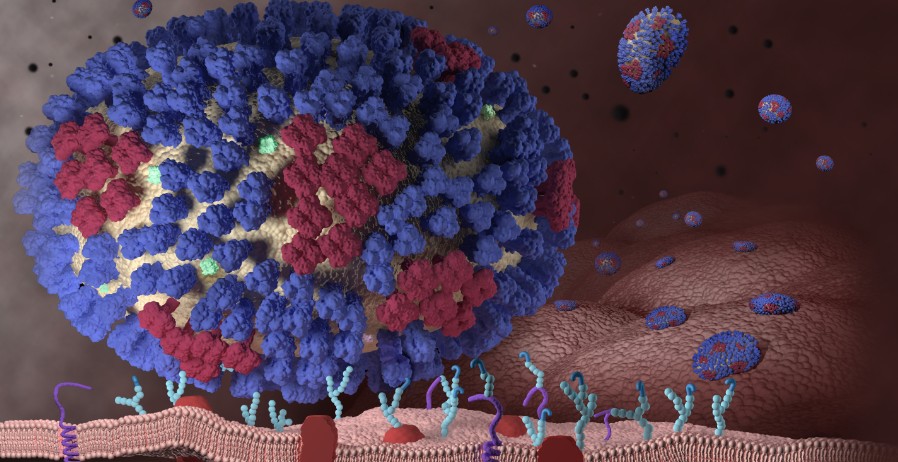New hope for a universal flu vaccine has come out of recent work by a join research team from McMaster University and the Icahn School of Medicine at Mount Sinai, New York. The team published a report Wednesday on a new class of broadly-neutralizing antibodies that are expected to increase the potency of our weapons against flu viruses.
“These broadly-neutralizing antibodies work very well in the context of natural human responses to vaccines or infections,” Dr. Matthew Miller, an assistant professor at the Department of Biochemistry and Biomedical Sciences, Michael G. DeGroote School of Medicine, McMaster University, told The Speaker. “This means that vaccines in development that are targeting these antibodies have a high chance of success.

“In addition, the types of antibodies present in the lung are especially good at providing ‘universal’ protection against flu, so if we can successfully increase their numbers by vaccination, they are likely to be very potent at protecting against infection.”
The research team’s work involves a previously unknown class of antibodies capable of neutralizing a wide range of influenza A viruses.
“These broadly-neutralizing antibodies bind to a region on the viral entry protein–the hemagglutinin stalk/stem domain–that are intolerant to change/mutation,” Miller told us.
“They were first discovered through the analysis of antibody repertoires isolated from mice–in the laboratory setting–and humans who had been exposed to influenza virus by either vaccination or infection.
“As a result, they are capable of neutralizing a much broader range of viruses than the type of exquisitely-strain specific antibodies that are predominantly elicited by current seasonal flu vaccines.”
The new antibodies have virus-fighting capabilities not possessed by the strain-specific antibodies currently in use.
“While flu is very good at mutating the region of the protein that strain-specific antibodies bind, it does not tolerate changes in the region bound by broadly-neutralizing antibodies. This seems to be because the structure of this region is very important for other viral functions.”
Miller explained how these new antibodies are different from isolated strain-specific antibodies.
“Strain-specific antibodies bind to the “head” domain of the viral hemagglutinin, which mutates readily and differs substantially among strains of flu. These broadly-neutralizing bind to a conserved region in the hemagglutinin stalk domain that is intolerant to mutation.”
The new antibodies hold wide promise, the researchers expect: mutations of the virus would also be protected against by the new vaccines, and flu pandemics could be eliminated.
Miller expects that a universal flu vaccine could become a reality within the next five to seven years.
The report, “Broadly-Neutralizing Anti-Influenza Virus Antibodies: Enhancement of Neutralizing Potency in Polyclonal Mixtures and IgA Backbones,” was completed by Wenqian He, Caitlin E. Mullarkey, J. Andrew Duty, Thomas M. Moran, Peter Palese, and Matthew S. Miller, and was published in the Journal of Virology.
Image: CDC
